Archives: Documents
-
Gender-responsive electric cooking: Insights from programmes in Nepal and Cambodia
In the last decade or so, interest in electric cooking (e-cooking) has increased in many countries in the global South. As more households aspire to a modern lifestyle, the retail market for electric cooking devices is growing, especially in urban areas, even though the potential is far from being realized. These include appliances such as…
-
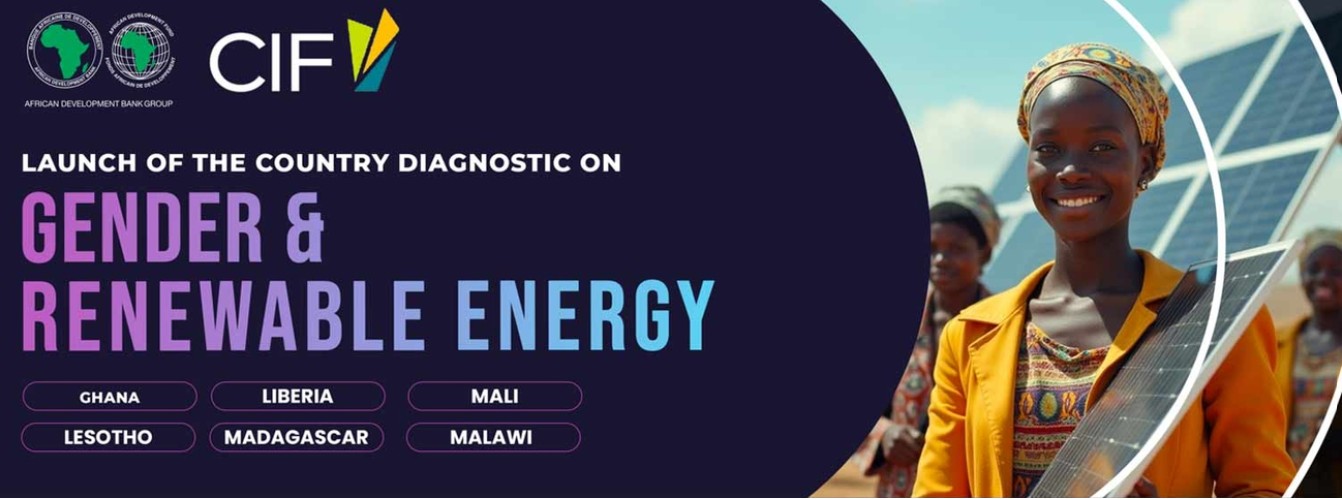
Country Diagnostic Studies on Gender and Renewable Energy
In 2025, the African Development Bank, with support from the Climate Investment Funds (CIF) under the Scaling Up Renewable Energy Program (SREP), has developed a series of Country Diagnostic Studies on Gender and Renewable Energy for Ghana, Liberia, Mali, Lesotho, Madagascar, and Malawi. These studies aim to strengthen the integration of gender equality in national energy strategies…
-
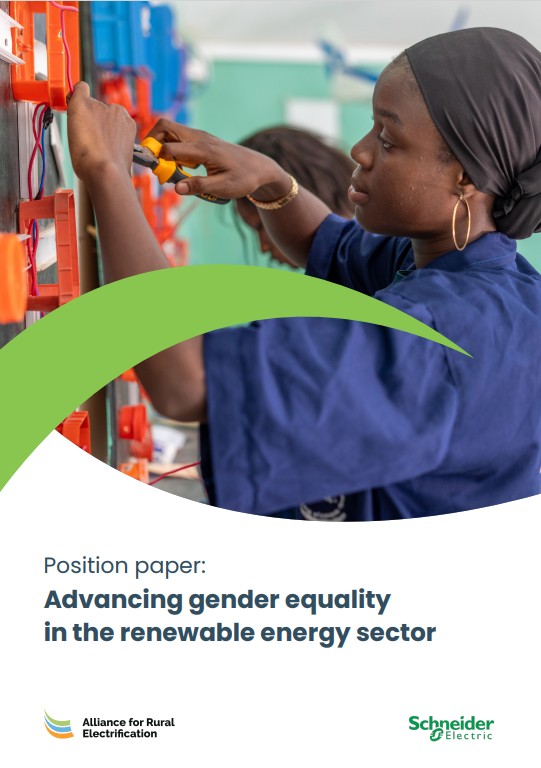
Advancing Gender Equality in the Renewable Energy Sector
This paper highlights women’s crucial role in the renewable energy sector, both on-grid and off-grid, and the impact of gender equality on universal energy access. Since 2006, ARE has led in the coordination between private sector, international cooperation and development support programs. Based on this experience, we present key recommendations for companies and funding partners…
-
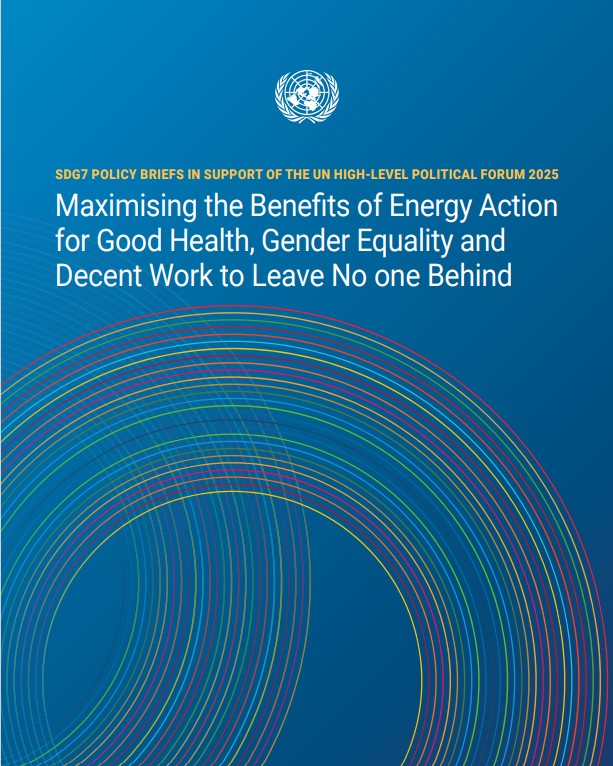
Maximising the Benefits of Energy Action for Good Health, Gender Equality and Decent Work to Leave No one Behind
Energy lies at the heart of sustainable development and climate action. Clean, affordable, and reliable energy powers hospitals, schools, jobs, and economic transformation. It drives opportunity, fosters social inclusion, and protects our planet for generations to come. This compilation of SDG7 Policy Briefs provides timely insights and recommendations to accelerate progress on sustainable energy, highlighting…
-
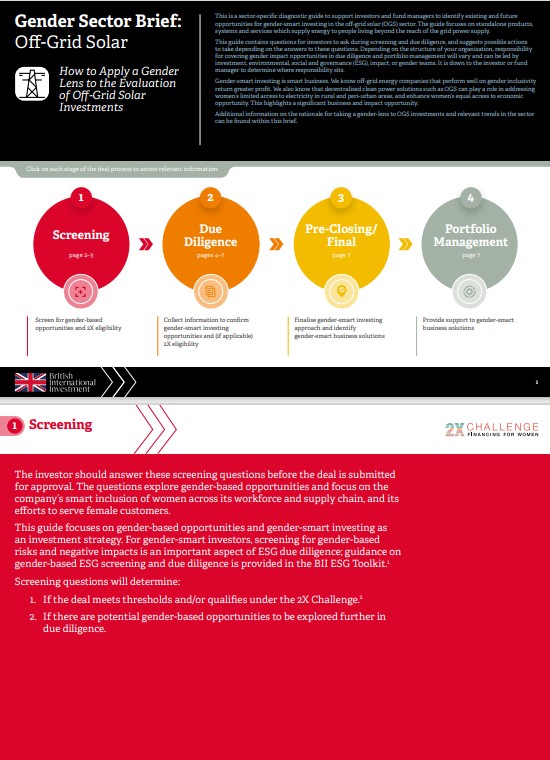
Gender Sector Brief: Off-Grid Solar
How to Apply a Gender Lens to the Evaluation of Off-Grid Solar Investments This is a sector-specific diagnostic guide to support investors and fund managers to identify existing and future opportunities for gender-smart investing in the off-grid solar (OGS) sector. The guide focuses on standalone products, systems and services which supply energy to people living…
-
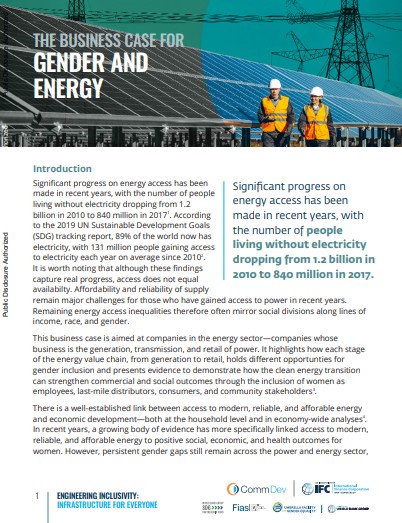
The Business Case for Gender and Energy
This business case highlights how each stage of the energy value chain, from generation to retail, holds different opportunities for gender inclusion and presents evidence to demonstrate how the clean energy transition can strengthen commercial and social outcomes through the inclusion of women as employees, last-mile distributors, consumers, and community stakeholders.
-
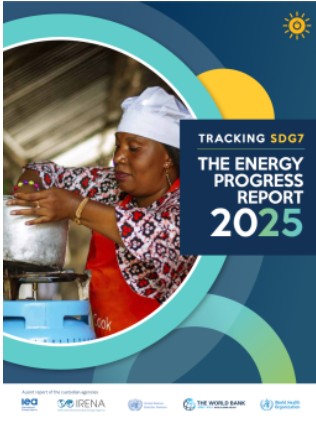
2025 Tracking SDG7 Report
This report summarizes global progress on electricity access, clean cooking, renewable energy, energy efficiency, and international cooperation to advance SDG 7. It presents updated statistics for each of the indicators and provides policy insights on priority areas and actions needed to spur further progress on SDG 7. Progress toward 2030 targets remains off track, particularly…
-
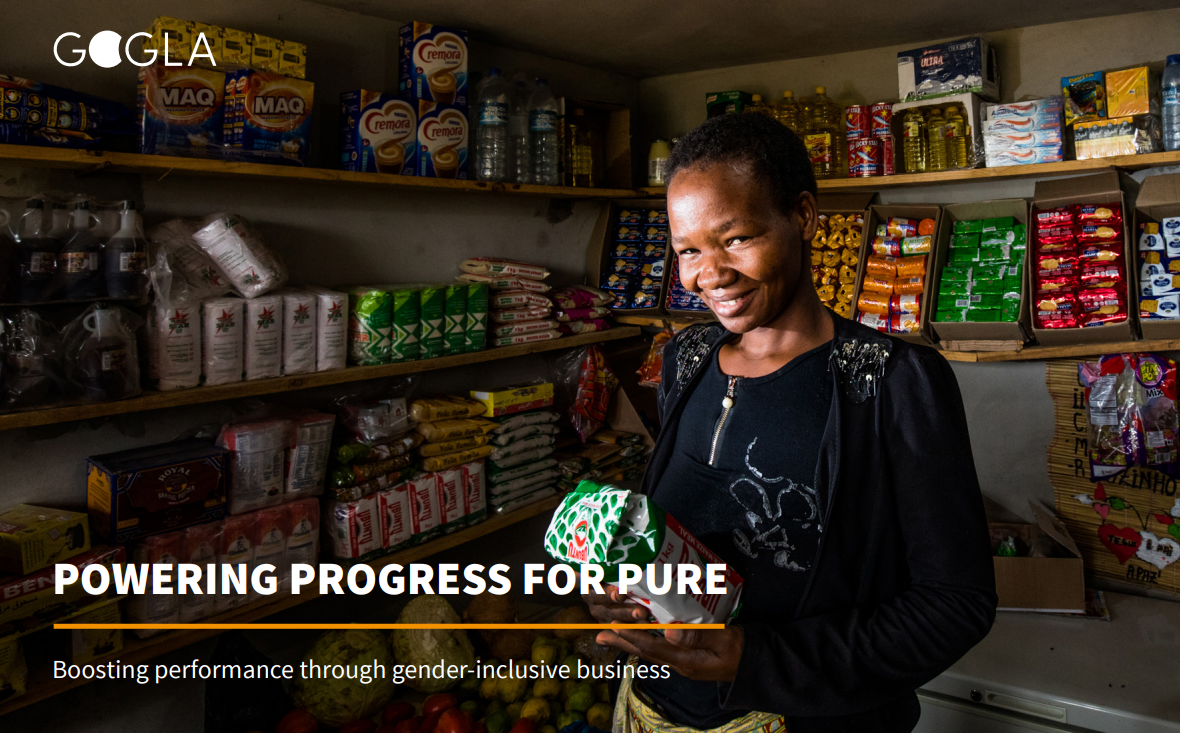
Powering Progress for PURE
This research, commissioned by GOGLA with support from the IKEA Foundation, examines how PURE companies can build gender-inclusive businesses that effectively serve women’s energy needs while developing sustainable business models. Through comprehensive desk research, key informant interviews with stakeholders including PURE (Productive Use of Renewable Energy) companies and subject matter experts, and detailed case studies,…
-

RBF Projects that Leave No One Behind: A Practical Guide for Designing Inclusive Results-Based Financing (RBF) Projects
To achieve Sustainable Development Goal 7 (SDG7) by 2030, prioritising the principle of Leave No One Behind (LNOB) is imperative to achieve universal energy access. A broad coalition, including UN member states, donors, and implementing agencies has pledged to integrate the LNOB principle within their interventions, recognising it as fundamental for fostering sustainable progress toward…
-
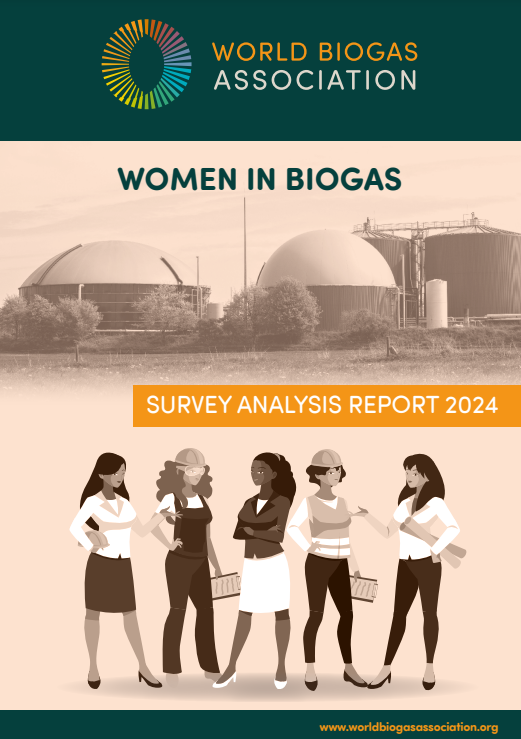
Women in Biogas. Survey Analysis Report 2024
This report explores the current state of gender representation in the biogas sector and highlights initiatives and policies needed to enhance female participation and leadership. It explores how women interact with the biogas sector as participants. Specifically, it analyses the progress and current place of women in the biogas industry relative similar industries
-
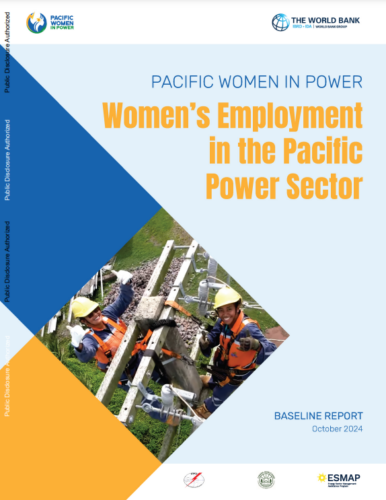
Women’s Employment in the Pacific Power Sector
Pacific Island Countries (PICs) face economic challenges due to their remoteness, limited resources, and gender inequality. The energy sector plays a crucial role in addressing these challenges by providing reliable and climate sustainable energy solutions. Increasing women’s employment in the energy sector is essential for building a strong and sustainable energy industry, as the sector…
-
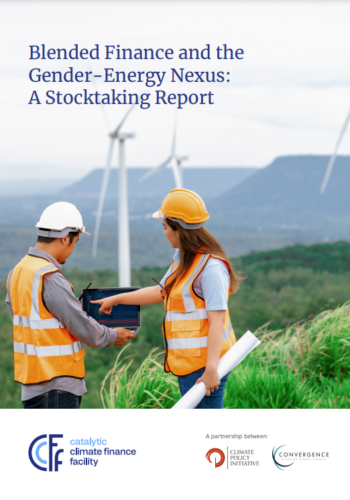
Blended Finance and the Gender-Energy Nexus: A Stocktaking Report
This report aims to take stock of current practices in the gender-responsive climate blended finance market, with a focus on energy. The report is divided into three sections: Part 1 begins with an overview of key data trends in the gender-responsive climate blended finance market, including across sectors, vehicles, regions, and investors. Part 2 examines…

